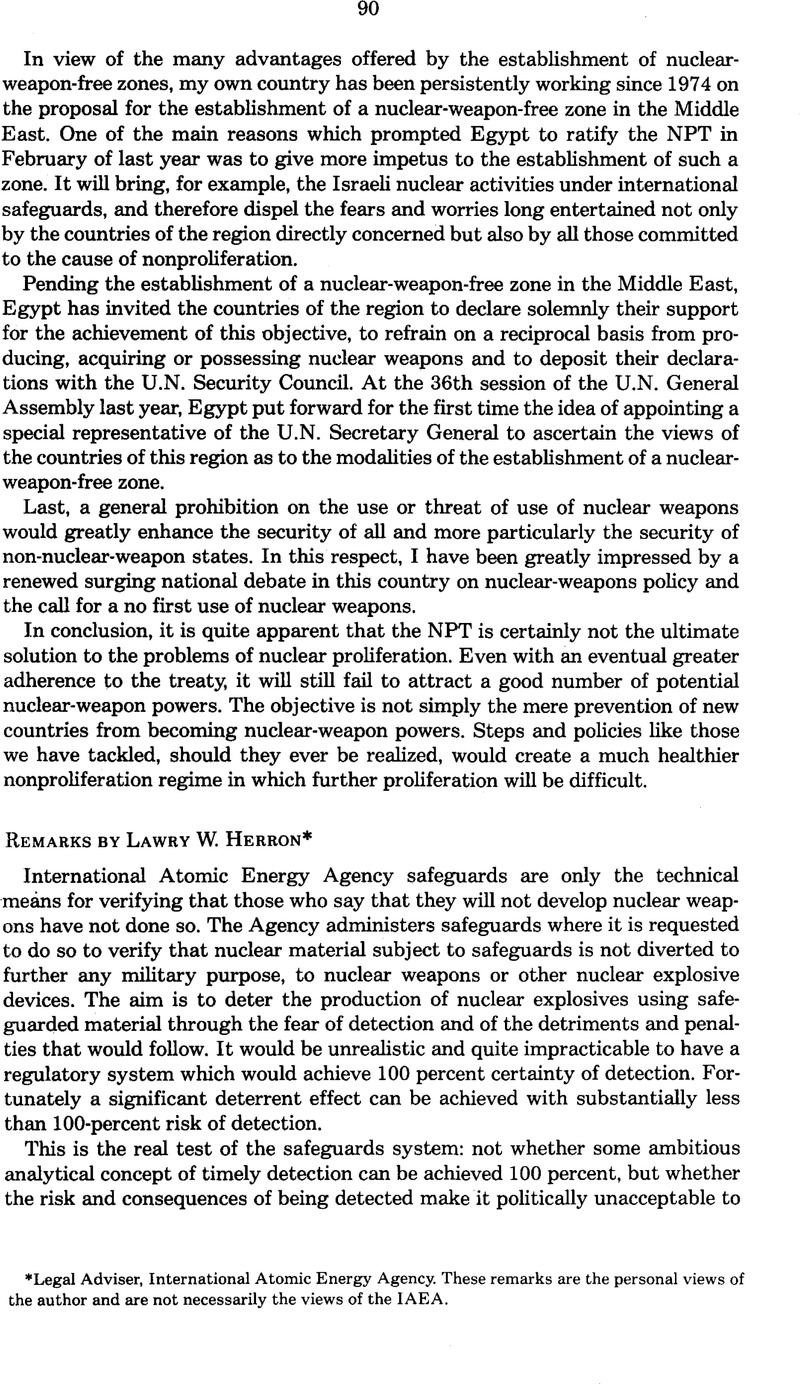No CrossRef data available.
Published online by Cambridge University Press: 28 February 2017

1 INFCIRC/66/Rev. 2.
2 Communications Received from Certain Member States Regarding Guidelines for the Export of Nuclear Material, Equipment or Technology, INFCIRC/254, 17 ILM 220 (1978).
3 INFCIRC/153,1 83(b), 10 ILM 855, 869 (1971).
4 So far as the Agency has rights to make unannounced visits to facilities it has so far not used them. Visa requirements and other travel arrangements can detract from the exercise of such rights except where inspectors are already in the country, as in the case of Canada and Japan. A more practical consideration is that for more important facilities visits will not be productive unless sensitive parts are accessible. Thus a visit without advance notice to check the content of the pressure vessel of a power reactor would be without object unless it were known that the reactor would be closed down and the core exposed.
5 INFCIRC/153, 1 18.
6 Id, at 1 34.
7 See, e.g., opening statement by Senator Cranston to U.S. Senate Foreign Relations Committee on IAEA, Dec. 2, 1981.
8 Part II of INFCIRC/153 spells out the objective of safeguards as the “timely detection of diversion of significant quantities of nuclear materials“.
9 IAEA Bo. OF GOVERNORS PROVISIONAL R. 11.
l0 Id.
11 The Agency may also curtail or suspend assistance. Since the Agency has not developed its statutory role as a supplier of materials and equipment to states, the sanction of calling for the return of materials and equipment it has made available to a state is hardly meaningful in the context of noncompliance with safeguards obligations.
l2 See, e.g., Wall Street Journal, Feb. 8, 1982, at 1.
13 INFCIRC/66/Rev. 2, 11 13, 14 and equivalent articles of agreements; INFCIRC/153, 1 5 and equivalent articles of agreements.
14 IAEA GC/(XXV)/RES/381.